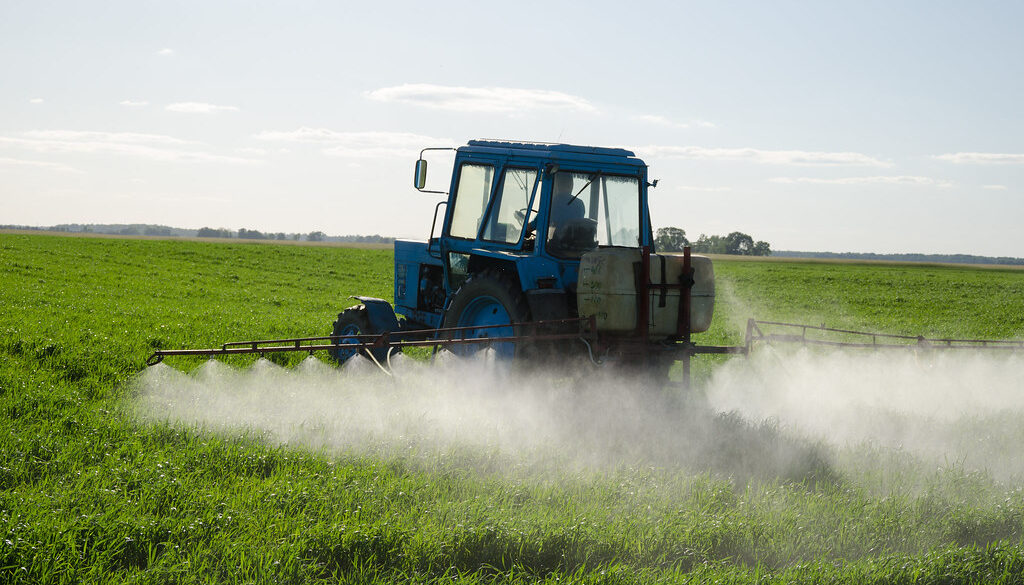Advocacy groups sue EPA after agency re-approved two highly toxic weed killers
Environmental and workers’ rights groups this week filed a lawsuit alleging a federal agency failed to properly consider risks to public health and the environment when it re-approved two highly toxic herbicides.
Enlist One and Enlist Duo, which are sprayed on crops across the US, contain chemicals that jeopardize the health of rural communities and farmworkers and threaten hundreds of endangered species, native plants, and local waterways, the groups warn. They also say the products can increase damage to nearby crops and exacerbate the problem of herbicide-resistant weeds. In January 2022, the Environmental Protection Agency (EPA) re-approved the weed killers’ product registrations for seven more years.
“Farmworkers and rural communities are experiencing significant health effects from Enlist herbicides,” said Mily Trevino-Sauceda, Executive Director of Alianza Nacional de Campesinas, which advocates for farmworkers’ rights, in a press release. “EPA’s registration decision shows an utter disregard for public health.”
In their complaint, the Center for Food Safety, Pesticide Action Network North America, and Alianza Nacional de Campesinas allege that the agency violated both the the Federal Insecticide, Fungicide, and Rodenticide Act (FIFRA) and the Endangered Species Act (ESA) when it re-approved the herbicides, understating the chemicals’ dangers and neglecting to consult the US Fish and Wildlife Service before moving forward.
“We’re asking the court to order EPA to properly consider the risks before approving these two harmful herbicides and to consult with the expert wildlife agencies,” said Kristina Sinclair, an attorney with the Center for Food Safety.
The groups are asking the Court to halt the use and sale of the herbicides until EPA complies with federal law and are calling for “relief as necessary to redress any harm to wildlife and the environment caused by EPA’s registration decisions,” the complaint states.
The US Fish and Wildlife Service issued a draft biological opinion just last month, almost a year and a half after the EPA re-approved the herbicides. The document suggests the Enlist herbicides “are not likely to jeopardize any listed species or adversely modify their critical habitats.”
A checkered past
Enlist One (first registered in 2017) and Enlist Duo (first registered in 2014) are products of Dow Chemical Co. used to control weeds in corn, cotton, and soybean crops. Both contain 2,4-D, one of the active ingredients in the chemical weapon Agent Orange, which inflicted widespread illness when the U.S. military used it during the Vietnam War. Enlist Duo also contains glyphosate, which has been linked to non-Hodgkin’s lymphoma, liver and kidney damage, and reproductive issues.
The complaint filed Tuesday is the latest legal development in the Enlist herbicides’ fraught history. In response to previous litigation with environmental groups, the EPA revoked Enlist Duo’s registration in 2015. In 2020, the Ninth Circuit Court held that EPA didn’t properly address risks to monarch butterflies in its previous Enlist registrations.
Both Enlist One and Enlist Duo were set to expire in January 2022 before the EPA renewed their registrations.
“Based on EPA’s thorough analysis of scientific data, evaluation of cost-benefit information, and discussions with industry stakeholders, the Agency has determined that Enlist products, with the new protective measures in place, should remain available to most American farmers,” the agency said in a press release when it renewed the herbicides’ registrations.
“Because this is pending litigation, EPA has no further information to add,” the EPA said when asked for comment about the herbicides’ risks and the agency’s decision to reapprove them.
Endangered species at risk
During its evaluations of the Enlist products, the EPA’s website says it determined that the herbicides “are likely to adversely affect listed species but will not lead to jeopardy of listed species or to the destruction or adverse modification of designated critical habitats.”
In an ecological assessment, the EPA found that chemicals that spread from their application sites as runoff posed risks to plants and animals, including bees. As a result, the EPA put protective measures in place, which include requiring farmers to select from a list of measures designed to reduce concentrations of 2,4-D and glyphosate in runoff.
“A lot of these measures were in place with previous registrations,” said Sinclair. “If they failed to protect endangered species in the past, how can those same measures protect species now?”
“You can actually increase the amount of Enlist herbicides that you spray while still complying with EPA’s supposed mitigation measures, so they’re not actually mitigating any harm,” she added.
 EWG
EWG


